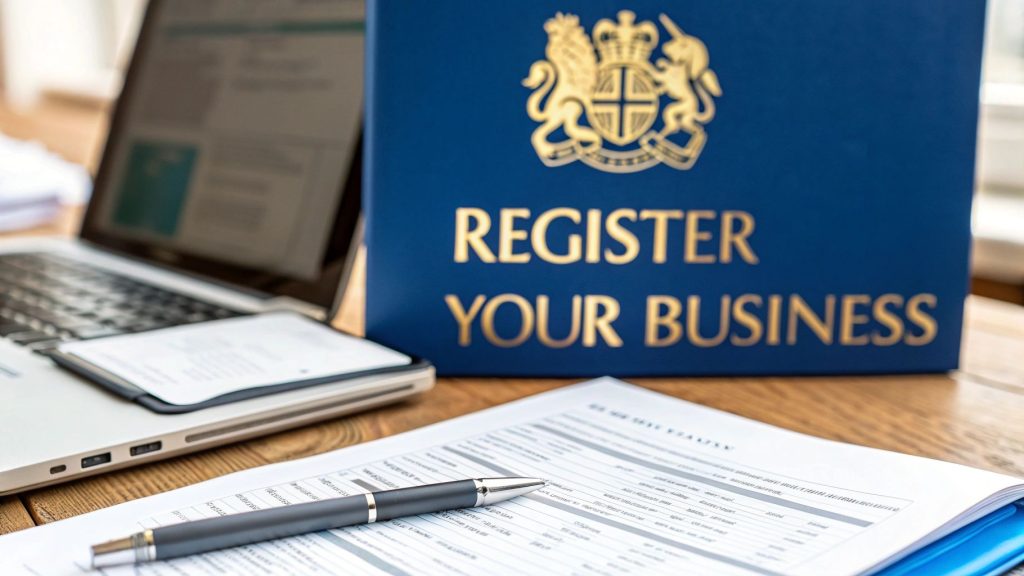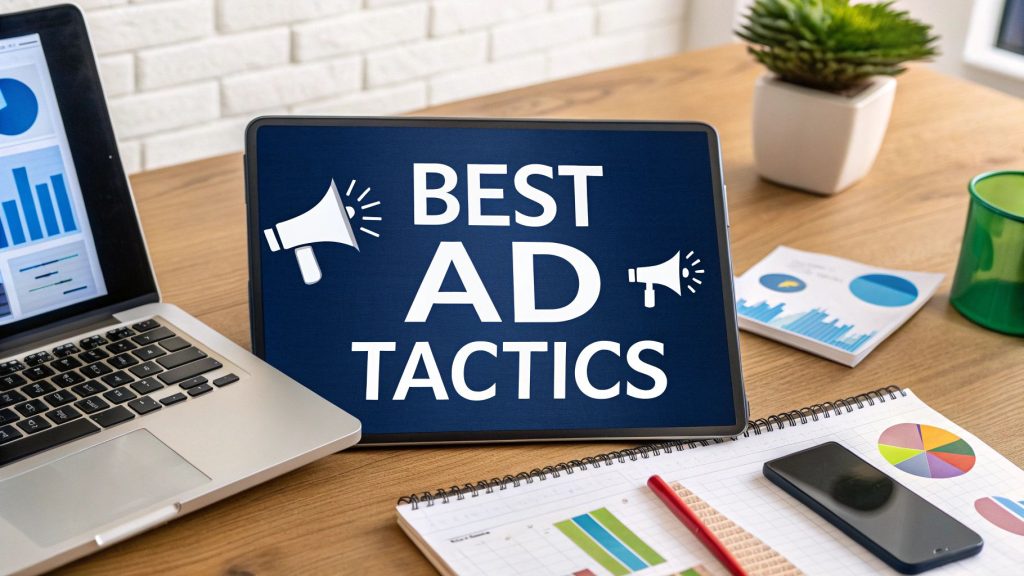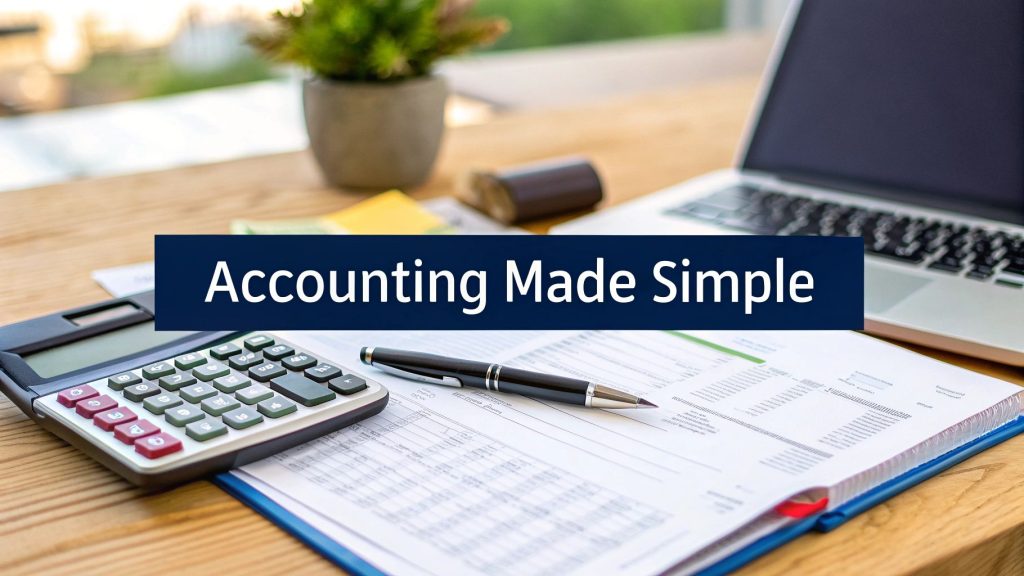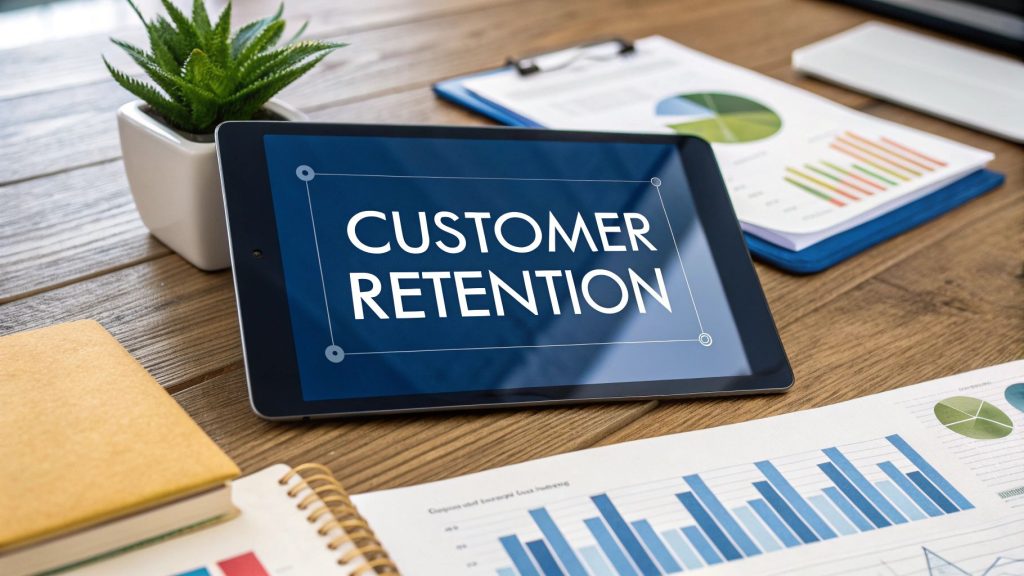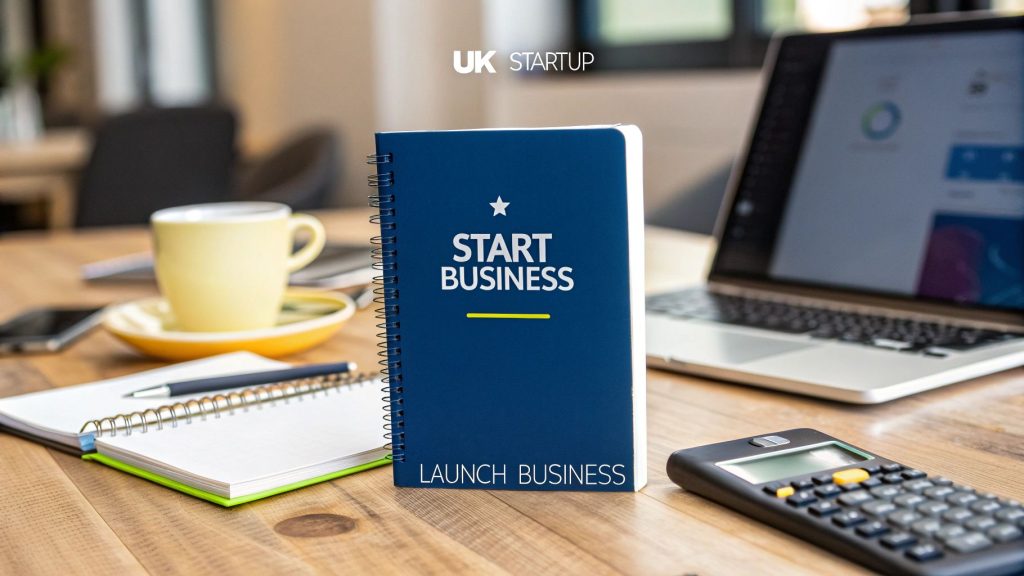How to Build Business Credit
How to Build Business Credit – To get business credit, you first need to set up your company as a separate legal entity, open accounts in its name, and make sure your suppliers are reporting your on-time payments to the main UK credit bureaus. This process is all about separating your personal finances from your business liabilities, which in turn creates an independent credit profile that unlocks better financing and stronger supplier relationships. It’s a foundational step for any serious UK entrepreneur.
Your Blueprint for Strong Business Credit
Building business credit is one of the most powerful moves an entrepreneur can make. A strong credit profile isn’t just a number; it’s a real asset that opens doors to better loan terms, higher credit limits, and trusted supplier relationships. It gives you the financial flexibility needed to manage cash flow, invest in growth, and ride out any economic bumps in the road.
The whole journey starts by drawing a clear line in the sand between you and your company. This separation is crucial for shielding your personal assets—like your home and savings—from business debts. Without it, lenders might see your business as just an extension of your personal finances, which can limit your access to capital and put your own wealth at risk.
The Foundational Pillars of Business Credit
Think of building business credit like constructing a house. You can’t put the roof on before you’ve laid a solid foundation. The core pillars are surprisingly straightforward and logical once you break them down.
- Formal Business Structure: First things first, you need to register your business as a legal entity, like a limited company. This creates the official identity that credit bureaus and lenders will recognise. If you’re wondering where to start, you can learn more about how to register a business name with Companies House in our detailed guide.
- Dedicated Finances: Opening a business bank account is non-negotiable. It proves to lenders you manage your company’s finances professionally and keeps all your transactions separate for clean accounting and credit reporting. For example, a freelance graphic designer who opens a Starling business account keeps their £50 software subscription separate from their personal £10 Netflix bill, creating a clear financial record for lenders.
- Positive Payment History: Once you’re set up, you need to open accounts with suppliers or creditors who actually report your payment activity. Consistently paying your invoices early or on time is the single most important factor in building a strong score.
The core principle is simple: prove your business is a reliable and separate entity that honours its financial commitments. Each on-time payment acts as a vote of confidence, gradually building a credit history that lenders can trust.
This process flow chart shows the essential sequence for getting started.
As the infographic highlights, these steps are sequential. You can’t really start building separate credit accounts without first establishing a formal company structure and bank account. It all works in order.
Laying Your Company’s Financial Foundation
Before you can even think about building business credit, you need to give the credit bureaus and lenders a business they can actually see. Think of it like this: a legitimate, official company identity is the bedrock of everything that follows. Without it, you’re essentially invisible to the financial system, making it impossible to separate your business from your personal finances.
Getting this right involves a few essential admin tasks that create a clean, professional financial identity for your company. This isn’t just about paperwork; it’s about proving your business is a serious, standalone entity that’s worthy of credit.

Registering as a Formal Business Entity
First things first: you have to formally register your business. For most entrepreneurs in the UK looking to build credit, this means registering as a limited company with Companies House. This is the most critical step because this legal structure officially separates your business’s finances from your personal ones.
Why is this so important? Sole traders often struggle to build business credit because lenders tend to tie any borrowing directly to the owner’s personal credit profile. A limited company, on the other hand, has its own legal identity, which is precisely what the credit bureaus need to create a dedicated business credit file for you.
Once you’re registered, you’ll also need to get a Unique Taxpayer Reference (UTR) from HMRC for your company. This is your business’s tax ID, and it’s used by lenders to report your financial activity. Depending on your turnover, you’ll also need to consider whether VAT registration is necessary.
Open a Dedicated Business Bank Account
With your company registered and your UTR in hand, the next non-negotiable step is opening a dedicated business bank account. Never, ever mix your personal and business finances. It’s a classic mistake. Using your personal current account for business transactions creates a messy financial trail that makes it incredibly difficult for lenders to assess your company’s actual health.
A proper business bank account brings a few key benefits to the table:
- Professionalism: It signals to lenders and suppliers that you’re running a legitimate operation.
- Clarity: It makes your bookkeeping ten times easier and simplifies tracking income and expenses.
- Credit Building: Lenders need to see your company’s cash flow in a business account. It’s a huge factor in their decisions.
Keeping your finances separate is one of the smartest things you can do for your business. For more strategies on this, our guide explains how to improve cash flow with practical tips that can make a real difference.
Establish a Professional Business Presence
Lenders and credit bureaus also look at the smaller details that signal stability and legitimacy. This includes having a professional business address and a dedicated phone number. These elements show that your business is established and not just a fleeting project.
Imagine you’re launching a new e-commerce startup from your spare room. Using your home address on official documents might feel convenient, but it can appear unprofessional and may even be a red flag for some lenders.
A fantastic solution here is to use a virtual office address. For a small monthly fee, you get a professional city-centre mailing address that adds instant credibility without the high cost of a physical lease. It ticks a key box for many credit applications and seriously strengthens your company’s image.
In the same way, get a dedicated business phone line. It doesn’t need to be a complex system—even a dedicated mobile or a VoIP service does the job. The goal is to present a consistent, professional front everywhere you go. This attention to detail shows creditors you’re building something to last, and that’s exactly what they want to see.
Opening Your First Lines of Credit with Suppliers
Right, you’ve done the hard work of getting your company set up properly. Now it’s time to move from paperwork to action. This is where your business credit journey really kicks off – not with a big bank loan, but with something far more accessible called trade credit.
Also known as supplier or vendor credit, this is often the simplest and most effective way for a new business to start building a positive payment history. It’s a straightforward arrangement: a supplier gives you goods or services upfront and lets you pay later, usually within 30, 60, or 90 days. Think of it as a small, interest-free loan that helps you get what you need while proving your reliability. Every time you open one of these accounts and pay it off, you’re creating the very data that business credit bureaus use to build your credit file.

Finding Suppliers That Report to Credit Bureaus
The strategy here is simple: start small and build momentum. Your first step is to identify suppliers you already need for your day-to-day operations—ones that are known for offering credit terms to new businesses. Many UK companies are happy to do this because it helps them lock in loyal, long-term customers.
For instance, if you’re launching an online shop, you’ll need packaging materials. If you’re a service-based startup, you’ll need stationery. You can approach vendors in these sectors and ask to open a trade account. Some common examples in the UK that are often open to this include:
- Office supply companies: Many national suppliers offer business accounts with payment terms after you’ve placed a few initial orders. A new marketing agency, for example, could open a business account with Viking Direct for their printer paper and ink.
- Packaging vendors: Companies providing boxes, tape, and shipping materials frequently work with new businesses on a Net 30 basis.
- Wholesale suppliers: Depending on your industry, your wholesalers might offer credit once you’ve established a good relationship. A new coffee shop might secure a Net 30 account with their bean roaster after three months of consistent upfront payments.
The key is to begin with small, manageable purchases you know you can easily pay off. Your main goal right now is to build a solid track record of reliability. It’s also vital to get your agreements in writing. You can find out more about how to protect your business with contracts and agreements in our comprehensive guide.
The Strategy: Make Small Purchases and Pay Early
Once you have a few supplier accounts up and running, the real work begins. Your mission is to build a flawless payment history. This doesn’t just mean paying on time—it means paying early.
Paying an invoice 10-15 days before it’s due sends a powerful signal to the credit bureaus. It shows your business is not just solvent but has excellent cash flow management. This proactive approach can make a huge difference in how quickly you build a strong credit score.
Imagine you open an account with a stationery supplier on Net 30 terms and make a small purchase of £100. Instead of waiting until day 29 to pay, you settle the invoice on day 15. Do this consistently every month, and you are actively building a stellar reputation.
Crucial Tip: All your hard work is for nothing if the supplier doesn’t report your payments. Before you open any account, ask them directly: “Do you report my payment history to the major UK business credit bureaus like Experian, Equifax, or Creditsafe?” If the answer is no, your on-time payments won’t help build your credit file. Find suppliers who do.
Understanding the Broader Credit Environment
Building business credit doesn’t happen in a vacuum; it’s influenced by what’s going on in the wider economy. Recent UK Finance data shows that while SME overdraft approvals are rising, their actual use has been low for two years, suggesting businesses are securing credit lines but remaining cautious about using them.
Interestingly, the proportion of small businesses using external finance fell to 43% by mid-2024, indicating a broader pullback from traditional credit. Despite this, business investment saw its fastest growth in two years in early 2025, up 8.1% year-on-year, particularly in tech and manufacturing. For entrepreneurs, this highlights just how important it is to build a strong credit profile to stand out and demonstrate financial stability to lenders who are carefully assessing risk in a complex market.
Graduating to Business Credit Cards and Loans
You’ve been paying your suppliers on time, maybe even a little early, and that’s fantastic. You’ve laid the groundwork and built up a bit of a payment history. Now it’s time to use that momentum. The next logical step is to graduate from simple trade credit to getting your first business credit card or a small loan. This is where your credit-building journey really starts to pick up speed.
This phase is all about showing lenders you can handle more sophisticated finance. Managing revolving credit and structured repayments responsibly sends a strong signal that you’re a disciplined, reliable business. Get this right, and you’ll open the door to much better funding opportunities down the line.

Choosing Your First Business Credit Card
A business credit card is probably one of the most powerful tools for building your credit profile quickly. Unlike some supplier accounts, credit card companies almost always report your payment activity to the major UK credit bureaus. That means every on-time payment is a positive mark on your file, actively strengthening your score.
When you’re starting out, forget the flashy premium cards with huge limits and airport lounge access. The goal here is simple: get a card you can manage easily. In the UK, you’ll generally find a couple of main types:
- Starter Business Cards: These are designed specifically for new businesses or those just starting to build credit. They usually come with lower credit limits and fewer perks, but that’s fine. Their entire purpose is to help you create a solid track record of payments.
- Rewards and Cashback Cards: Once your credit history is a bit more established, these cards can be great. They offer benefits like cashback on your spending or travel points. They often have higher annual fees, but if your business spending aligns with the rewards, they can pay for themselves.
Think of your first card not as a source of funding, but as a dedicated credit-building tool. Use it strategically.
Managing Your Card for Maximum Impact
Getting the card is one thing; how you use it is what truly counts. If you manage it poorly, you can do more damage to your credit score than if you never had a card at all. To make sure you’re building credit effectively, stick to two simple but non-negotiable rules.
First, pay the balance in full, every single month. Carrying a balance doesn’t just cost you a fortune in interest; it can also signal to lenders that your cash flow is tight. Paying it off shows financial strength and good management.
Second, keep your credit utilisation ratio low. This is just the percentage of your available credit that you’re using. Lenders get nervous when they see this creep up, so a good rule of thumb is to keep it below 30%. For example, on a card with a £2,000 limit, try to keep your balance under £600 at all times—even if you plan to pay it off in full at the end of the month.
Real-World Example: Let’s say a small consultancy gets its first business credit card with a £1,500 limit. They decide to use it only for their recurring monthly software subscriptions, which total £350. By paying this £350 off in full each month, the consultancy keeps its utilisation at a healthy 23% and builds a perfect payment history, giving its credit score a serious boost.
Exploring Alternative Lenders and Finance Options
When the time comes to think about a small business loan, don’t just walk into your local high-street bank. The business finance world in the UK has changed massively. Challenger banks and specialist online lenders are now major players, and they often have more flexible criteria that are better suited to new businesses.
In fact, these non-traditional lenders are now a dominant force. They were responsible for £34.8 billion—or 59% of all gross lending—to UK businesses in 2023. Getting approved is still a challenge, though, with only 44% of loan applicants succeeding. Asset finance, where the loan is secured against something the business owns, often has the highest approval rates, making it a solid option for new companies.
These figures show just how important it is to look beyond the obvious lenders. It’s also why so many small businesses turn to commercial brokers, who arranged a staggering 69% of all lending to smaller firms. If you want to dive deeper, you can discover more insights about these business finance statistics and learn how brokers can improve access to funding.
By exploring these different avenues, you’ll be in a much better position to find the right kind of finance to keep building your business credit responsibly.
How to Monitor and Maintain Your Business Credit
Getting those first few trade accounts set up feels like a huge win, but don’t make the mistake of thinking the job is done. Building a strong business credit profile isn’t a one-off task; it’s an ongoing commitment. Think of it like a garden—it needs constant attention to flourish. Regular monitoring is what separates an average credit score from a great one.
If you aren’t keeping a close eye on your credit reports, you’re essentially flying blind. Errors can easily creep in, negative marks can go unnoticed for months, and you could miss golden opportunities to strengthen your profile. Staying on top of your credit health ensures all your hard work actually pays off when you need it most.
Regularly Reviewing Your Credit Reports
The first habit you need to build is regularly checking your business credit reports. In the UK, the main players are Experian, Equifax, and Creditsafe. Each bureau has its own way of calculating scores, so your numbers can vary. It’s a smart move to get the full picture by checking your standing with all three at least a few times a year.
So, what are you looking for when you pull your reports?
- Payment History: Is all your positive payment information showing up correctly? Have any payments been wrongly marked as late?
- Public Records: Check for any public records filed against your company, like County Court Judgements (CCJs). These can seriously damage your score and must be dealt with immediately.
- Credit Enquiries: Look at which companies have recently viewed your file. A sudden spike in “hard enquiries” can be a red flag to potential lenders.
If you spot a mistake—say, a payment marked late that you actually paid early—don’t just let it slide. You have the right to dispute it. Get in touch with the credit bureau directly with your proof, like bank statements or receipts, to get the incorrect information investigated and removed.
Proactive Steps for a Healthy Score
Maintaining a strong credit score is about more than just dodging mistakes; it’s about actively managing your finances in a way that lenders find attractive. This means showing financial discipline in how you handle your credit.
For instance, try to diversify your credit mix over time. A company that responsibly handles a mix of trade credit, a business credit card, and maybe a small asset finance agreement looks far more financially mature than one that only uses supplier accounts. It shows different types of lenders trust your ability to manage various repayment structures.
Here are a few other practical tips for keeping your score high:
- Manage Debt Wisely: It sounds obvious, but don’t take on more debt than your business can comfortably handle. High debt levels relative to your income signal risk.
- Keep Old Accounts Open: The age of your credit history really matters. Even if you no longer use a particular supplier account, keeping it open and in good standing helps lengthen your credit history. For example, a catering company should keep their first-ever vegetable supplier account open, even if they only place a small order once a year.
- Talk to Your Lenders: If you see a cash flow problem on the horizon that might cause a late payment, speak to your creditor before it’s due. Many are willing to work out a temporary arrangement that won’t harm your score.
Your Credit Profile in a Broader Context
Your business’s credit health doesn’t exist in a vacuum. It’s directly influenced by what’s happening in the wider economy. Lender confidence can shift with economic trends, making a consistently strong credit profile your best defence against market uncertainty.
For example, in the first quarter of 2025, gross lending to UK SMEs hit nearly £4.6 billion. That’s a 14% increase from the previous year, even as the economy was showing signs of a slowdown. This tells us that while lenders are still keen to provide finance, they are becoming far more selective. A robust profile is no longer a ‘nice-to-have’; it’s essential. You can read the full research about these UK business finance trends to get a better sense of the current lending environment.
By diligently monitoring and maintaining your business credit, you’re not just building a score. You’re building a resilient financial asset that will support your company’s growth, whatever the economic climate.
Common Questions About Building Business Credit
Getting your head around business credit often throws up a lot of questions. As you go from setting up your company to opening your first accounts, it’s completely normal to wonder about timelines, common pitfalls, and who the main players are. This section gives you direct, practical answers to some of the most frequent queries from UK entrepreneurs.
How Long Does It Take to Build Business Credit in the UK?
Building a solid business credit history is a marathon, not a sprint. You can usually get an initial credit file established within 3-6 months of opening your first trade accounts, as long as they’re reporting your payments to the bureaus. That’s your first big milestone.
But to build a really strong score that lenders will find attractive for serious financing, you should be thinking more along the lines of 12-24 months. This timeframe gives you a chance to build up a consistent, positive payment history. It’s all about patience and diligence; the more positive data you add over time—like paying suppliers early and managing a business credit card responsibly—the quicker your profile will strengthen.
Can I Use My Personal Credit to Get Business Credit?
Yes, and you almost certainly will when your business is brand new. Most UK lenders will check your personal credit score when you apply for a business loan or credit card, often asking for a personal guarantee. This happens simply because a new business has no track record, so lenders look at you, the director, to figure out how reliable the company might be.
However, the main goal is to separate your business and personal finances as soon as you can. By opening trade lines and other credit purely in your company’s name, you build an independent profile that doesn’t put your personal assets on the line. This separation is vital for long-term growth and protecting your personal liability.
Think of your personal credit as a temporary bridge to get your business credit started. The sooner your business can stand on its own two financial feet, the better protected you are and the more scalable your company becomes.
What Are the Main UK Business Credit Bureaus?
In the UK, the big three business credit reference agencies are Experian, Equifax, and Creditsafe. They all collect and analyse similar data—payment history, public records, and company details—but they each use their own secret sauce to calculate credit scores.
This means your score can, and often does, vary between them.
- Experian uses its Commercial Delphi score, which is a favourite among the major banks.
- Equifax is known for providing the detailed risk assessments that many lenders lean on.
- Creditsafe offers a straightforward 0-100 rating that’s really easy to understand at a glance.
Since some of your suppliers might only report to one or two of these bureaus, it’s a smart move to keep an eye on your reports with all three. It’s the only way to get a complete and accurate picture of your company’s credit health.
What Common Mistakes Should I Avoid?
Knowing what not to do is just as important as knowing what to do. A few common slip-ups can easily wipe out months of hard work.
One of the biggest blunders is paying invoices late. Payment history is the most important factor in your score, so even a single late payment can do serious damage. Another classic mistake is mixing personal and business expenses. It just muddies the waters, making it hard for bureaus and lenders to see your company’s true financial position.
Applying for too much credit at once is another red flag. Lots of “hard enquiries” in a short space of time can drag your score down, as it might look like your business is in financial trouble.
Finally, and this is a crucial one that gets overlooked, is failing to check if your suppliers actually report your payments to the credit bureaus. All your good behaviour goes completely unnoticed if it’s not being recorded. Always confirm reporting practices before opening a new account to make sure your efforts are actually counting.
At Grow My Acorn, we are dedicated to providing the information and advice you need to navigate every stage of your business journey. From initial setup to scaling for growth, find clear, actionable guidance on our site. https://growmyacorn.co.uk
















